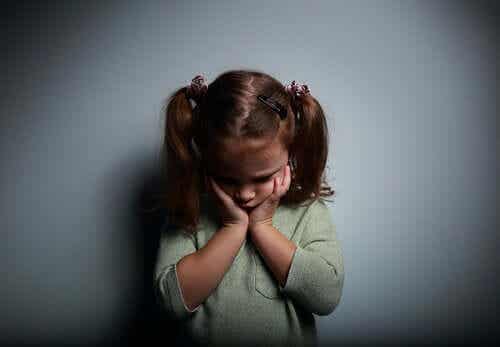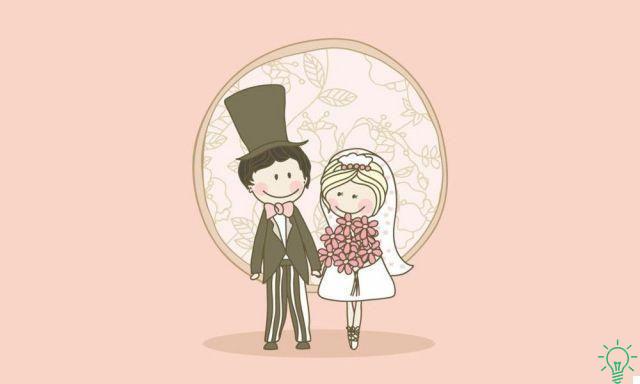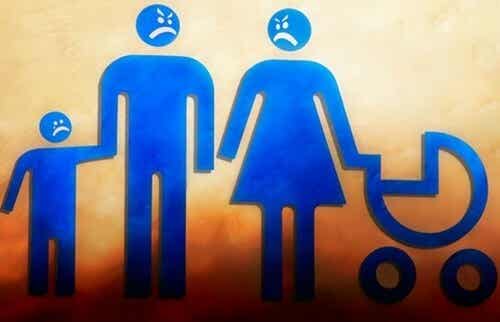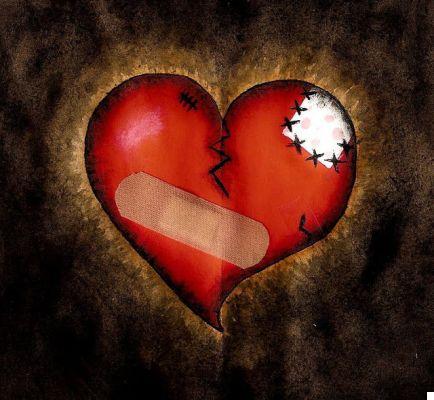Generally, those who come from a dysfunctional family background tend to reproduce the same characteristics when starting a family. If not managed with the help of a professional, this chain risks not being interrupted and worsening to the detriment of subsequent generations.

Last update: July 29, 2022
Many of the problems globally originate in dysfunctional families. This primary context, which leads to learning a lot and in a short time, deeply marks those who are part of it. It even comes to condition, for better or for worse, the way in which as adults we will face the different challenges of life. In this article we will focus on the main characteristics of a dysfunctional family.
Some people base their relationship with their partner and children on the basis of a pattern that they tend to repeat or against which they have reacted, but which deep down they have never questioned. They may even want to make sense of a life that they perceive as purposeless. They often come from dysfunctional families from which they want to escape without paying the price of autonomy.
Sometimes those who decide to start a family are not physically, mentally or emotionally ready. And this is how the dysfunctional family is born. The consequences for each member are unpredictable, but they almost always hinder or prevent you from leading a full life. In the next few lines, let's examine the main characteristics of a dysfunctional family.
"Having children does not make us parents, just as having a piano does not make us pianists."
-Michael Levine-
5 characteristics of a dysfunctional family
1. There is abuse
There are different types and degrees of dysfunctionality in a family. In this article we will deal with the dysfunctional family that causes severe harm to its members. Given this premise, we can affirm that the first great characteristic of a dysfunctional family is the prevalence of relationships that, more than favoring the development of the various members, they cancel it.
Abuse is any action aimed at harming a person who is at a disadvantage or vulnerability. It is also defined as an abuse of power, that is, as an exercise of authority without logic and without moderation. The abuse can be physical, psychological and / or sexual. In all these cases it causes serious consequences.
2. Each member feels unworthy
Often members of a dysfunctional family face challenges that family members themselves make more difficult. In such a climate it becomes extremely difficult to find someone who can understand or validate their feelings. The opposite often happens: they are despised or denied.
It is also common for them to be intolerant of defects or errors in other components. We criticize each other, sometimes in an extremely cruel way. Destructive feelings prevail, so each member feels they have no value.
3. The characteristics of the dysfunctional family: witnesses of domestic violence
It is common for one or both parents to be drug addicts in a dysfunctional family or suffering from an emotional or mental disorder. Therefore, situations that are difficult to understand for children tend to arise.
Specifically, this amalgam of problems often leads to episodes of violence that terrify children and trigger chronic conflicts between parents. Witnessing screams and / or beatings or being a victim of them marks and defines the individual's inner dialogue. In addition to this, in those who live such realities a feeling of indefinite fear tends to remain.
4. Uncertainty, chaos and insecurity reign
To grow healthy, a child needs security and stability. In other words, quite the opposite of what happens in a dysfunctional family. Today everything could go smoothly, while tomorrow may be chaos. Maybe today's beating didn't cause too much damage, but next time?
This sense of uncertainty, chaos and insecurity affects people emotionally, especially children. They are quite likely to have severe daily stress and medium to long-term post-traumatic stress disorder. They can become nervous, touchy, shy. They may even be afraid of the world or of themselves.
5. Characteristics of the dysfunctional family: don't talk and don't trust!
These imperatives often belong to the dynamics of dysfunctional families. The first is not to talk, especially about what happens in the family. But not even their own feelings, because nobody cares so much. We cannot talk about what happens also because: "how dare you question the family?"
Similarly, he is taught not to trust. The dysfunctional family often tends to be hermetic, giving rise to a closed and toxic world, governed by a logic of pure poison. Anything foreign to the family is often viewed with distrust. Being unable to trust either inside or outside the created ecosystem leads people to live in a state of constant tension.
The dysfunctional family requires professional therapeutic intervention. The effects it can have on the various members are not always the same. In some cases it can be devastating. In other cases, it can condemn the individual to a dull, fear-ridden life.
If this chain is not interrupted by professional intervention, most likely, due to inertia, the problems are perpetuated until they grow from generation to generation.


























